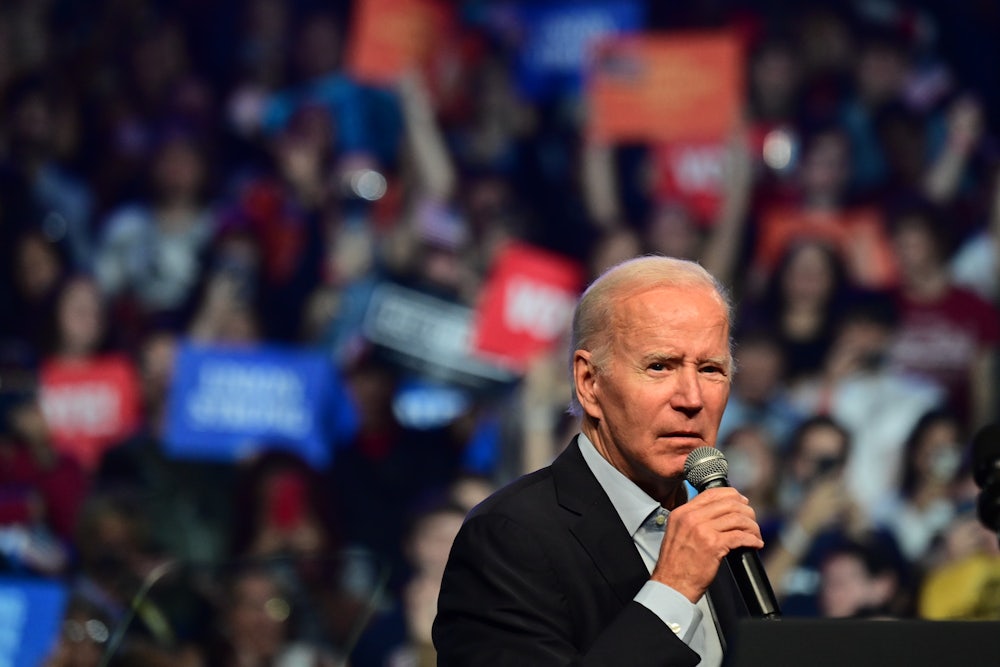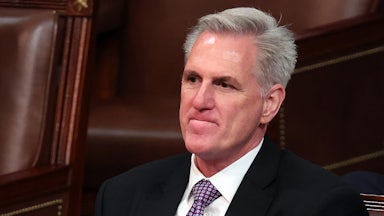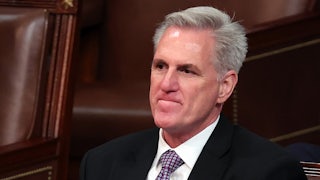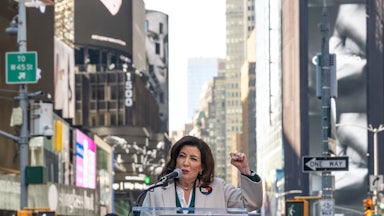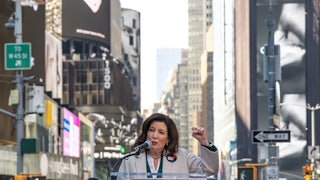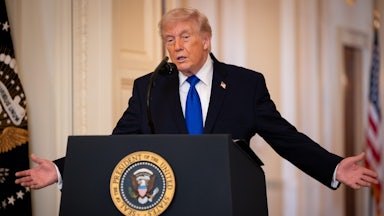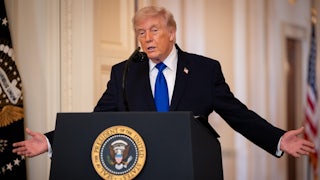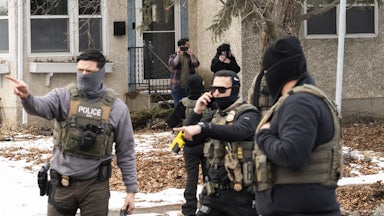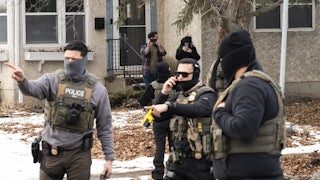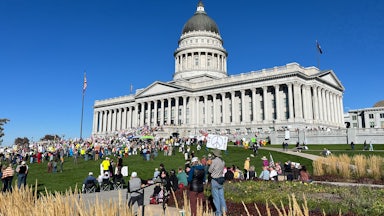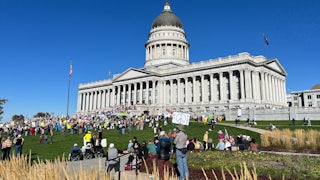President Biden says democracy is on the ballot. In his speech that he delivered as a final salvo before midterm elections, he reminded us that political violence based on lies is a true threat to democracy. He’s right, of course. The news cycle has been filled with hate, from the violent attack on House Speaker Nancy Pelosi’s husband, Paul, to the threat assessment released by the Department of Homeland Security, which believes we have to be more vigilant around the potential for more violent attacks by election deniers. A dark new survey finds that five million Americans say they would be willing to kill another human being to serve a political end. One would be too many, but five million!
Biden also rightly pointed to the force that Trumpism has become, through the divisive and dangerous lies that have swelled the ranks of election deniers and through the hate he has stoked into a presumption of permission for those who think violence is an answer. No one should be surprised that Donald Trump’s rally in North Carolina weeks ago was charged by his loyal followers with racist chants of the n-word. He has a history of inciting hate and violence, causing some to refer to him as an “accelerant.”
Playing to Trump’s base, too many politicians deny the depths and dangers of political violence and racism. Marjorie Taylor Greene spouted white supremacist/neo-Nazi “replacement theory” to drive a wedge of fear between her adherents and immigrants with undeniably coded language about Mexicans, Asians, and Africans. Then of course there was rapper turned Trump supporter Kanye West, doubling down on antisemitism.
Polls have sounded alarm bells for the state of our democracy. In September, we were told that one-third of Americans, who lean Republican, support strong unelected leaders over weak elected ones. A similar number, leaning more Democrat, believe that a president should be able to remove judges at will. Back in January, a poll found that over half of those polled believed the country would see another January 6–style attack.
The hate-mongering and misinformation, the polarization and the polling that remain top news stories heading into the midterm elections mask something important: something that should bring us hope and, quite possibly, pull us back from the brink. Our polling at the Leadership Conference on Civil and Human Rights, the nation’s oldest and largest civil rights coalition, shows that the majority of us are not fooled. We looked at democracy and at civil rights to determine just how hopeful or fearful we should be. From our commissioned survey, conducted by Cornell Belcher at Brilliant Corners, we found 73 percent of voters, across the political spectrum and across race and gender, believe democracy is under major threat.
A large number of conservatives believe the lies about voter fraud and a stolen 2020 election. Their fear about “democracy” disturbingly is more about a fear of losing white, Christian culture to the rapidly growing numbers of immigrants from Mexico to Malaysia. Paul Pelosi’s attacker, David DePape, was not only a conspiracy theorist; he stated on his blog that “Hitler did nothing wrong” and that “facts are racist.” DePape is an extremist, but he is a white, ethno-national extremist. And that is a huge threat to our democracy.
But our poll shows that many voters are concerned about democracy as a protector of fundamental and civil rights, not as a vehicle for white supremacy or Christian extremism, or of racial and religious division. The vast majority, 73 percent, believe the government should protect minorities, including 68 percent of white voters and a massive 83 percent of moderate voters. And if we get explicit about Black people to test the resolve of these respondents, 62 percent say the government should explicitly protect Black people, including 57 percent of white and 72 percent of moderate voters.
Push it further into the crime-disinformation area, and the point still holds. Our polling found, despite the fearmongering of those who use fear of crime to drive voters, that while people want to be safe from crime, most see prevention programs as the path over adding to the ranks of police. Forty-nine percent of white respondents and 64 to 66 percent of Black, Latino, and young voters want preventive approaches over policing dollars. This includes 65 percent of moderates and even 30 percent of conservatives.
How we talk about issues of importance does matter, as well as whether the messengers are credible. It also matters whether people have hope that change can happen. We know that generally, as a democracy, our voter participation is abysmal. And the lower people’s income, the lower participation rates, especially among historically marginalized communities. But door-knocking by people we trust makes a difference in turnout, as does ease of voting.
What our polling shows is not only that most of us want an America that is just and inclusive. That America is possible if we talk about what we care about, make it about all of us, call out the need for justice and fairness, and engage people to get them to see that they are part of a majority and their vote matters. What it shows us is that, despite the hate and the fear, most of us recognize that we are stronger together, and we aren’t fooled by the politicians who try to pit us against each other. We know that we benefit from each other’s freedoms. We know that a rights-loving country is a stronger democracy. No matter the outcome of the midterm elections, we have a path to make more moderate and swing voters care about the price of liberty along with the price of gas.
